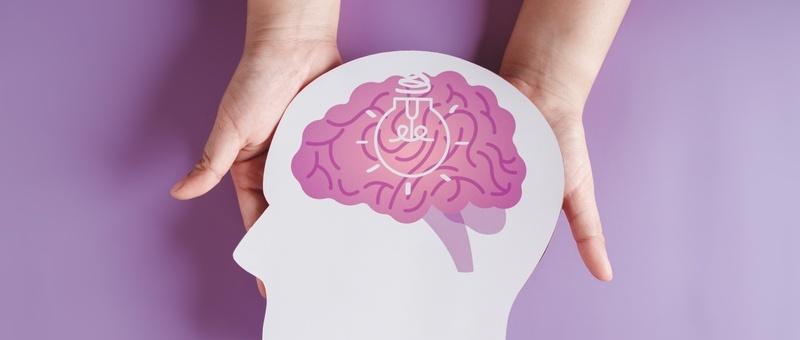
What is early Alzheimer’s disease - and what causes it?
Peer reviewed by Dr Krishna Vakharia, MRCGPLast updated by Lydia SmithLast updated 26 Jan 2024
Meets Patient’s editorial guidelines
- DownloadDownload
- Share
- Language
- Discussion
Around 70,800 people in the UK have early onset dementia - meaning they are diagnosed before the age of 65. Alzheimer's disease, the most common cause of dementia, accounts for around one third of these cases. Here we look at what we know about Alzheimer's - its causes and symptoms.
In this article:
Continue reading below
What is early-onset Alzheimer’s disease?
Alzheimer's disease is the most common cause of dementia - the name for a group of symptoms associated with the decline of brain function - in the UK. Alzheimer’s disease develops when proteins build up in the brain to form structures called plaques and tangles. This causes brain cells to die, which affects some of the things we do which are controlled by the brain, including memory, thinking, and reasoning.
Usually our memory is affected first, but sometimes different areas of the brain and the other things they do, can be affected. For some people, the first symptoms may be problems with vision or speaking, rather than memory.
Although the condition generally affects people over 65, people can develop Alzheimer’s disease at a younger age. Early onset dementia, or young onset, is when people receive a diagnosis before the age of 65. Around 70,800 people with dementia in the UK are thought to have young onset dementia, and Alzheimer’s disease accounts for around 1 in 3 cases of these1.
What are the symptoms of early onset Alzheimer’s disease?
The symptoms of early-onset Alzheimer's vary from person to person, but the disease is progressive - meaning the symptoms get worse over time. Someone with Alzheimer’s disease may start having memory lapses, forget recent conversations, or experience mood changes, such as feeling more anxious or agitated.
As the disease develops, memory problems will get worse and you may experience confusion and disorientation, problems with speech, insomnia, mood swings and depression. You may also experience paranoia and delusions - having beliefs that aren’t true, for example, that a relative is trying to hurt them.
In the later stages of Alzheimer's disease, the symptoms become increasingly severe and can include significant memory loss, difficulty eating and incontinence. The condition can be deeply upsetting for loved ones and the person affected may need full-time care.
Continue reading below
What causes early onset Alzheimer’s disease?
Although Alzheimer’s disease is normally associated with old age, this isn’t always the cause. It's not known exactly what causes someone to develop Alzheimer's disease before the age of 65, but many researchers believe the condition may develop as the result of multiple factors.
Genetics
Having a history of dementia in the family may mean someone is more at risk of developing the condition. In some cases, Alzheimer’s disease can be caused by rare genes that are inherited2. In her column in the Mirror, Phillips said her mother, father, uncle and grandparents had Alzheimer’s. The presenter is a supporter of the charity Alzheimer’s Research UK and a long term campaigner for its cause.
Hilary Evans, chief executive of Alzheimer’s Research UK, said: “It takes such courage to go public with a diagnosis and Fiona knows better than most just how much good that can do. Awareness is vital and Fiona’s bravery will help many people who are going through their own dementia journeys.”
Down’s syndrome
People with Down’s syndrome and other learning disabilities are more likely to develop dementia at a younger age. Dementia in people with Down’s syndrome is usually caused by Alzheimer’s disease, but this isn’t always the case.
Heart disease and stroke
Cardiovascular diseases, such as heart disease or stroke, can increase the risk of developing Alzheimer’s disease3.
Smoking, high blood pressure, high cholesterol and type 2 diabetes have all been linked to increased risk. Brain damage caused by alcoholism can also increase someone’s chance of Alzheimer’s disease.
Head injuries
People who have had a severe head injury may be at higher risk of developing Alzheimer's disease4. However, more research is still needed to find out about this connection.
Other factors
Hearing loss5, loneliness and untreated depression6 are all thought to play a role in the development of dementia, but whether they cause Alzheimer's disease has yet to be fully understood. Around 1 in 5 people with Alzheimer's have depression but it is uncertain what came first so further studies in this area are needed.
Further reading
Patient picks for Memory loss and dementia

Brain and nerves
Regular exercise could slow Alzheimer's disease
Exercising for half an hour, five times a week could help slow down the effects of Alzheimer's disease.
by Ashwin Bhandari

Brain and nerves
How to support someone with dementia
Looking after a loved one with dementia can be very difficult and it can be hard to know how to support them. Often, caring for someone with dementia can lead to feelings of sadness, frustration, anger and guilt - but it can be rewarding to support them too. So what can you do to help someone with dementia while looking after yourself too?
by Lydia Smith
Continue reading below
Article history
The information on this page is peer reviewed by qualified clinicians.
Next review due: 26 Jan 2027
26 Jan 2024 | Latest version
13 Jul 2023 | Originally published
Authored by:
Lydia Smith

Ask, share, connect.
Browse discussions, ask questions, and share experiences across hundreds of health topics.

Feeling unwell?
Assess your symptoms online for free
Sign up to the Patient newsletter
Your weekly dose of clear, trustworthy health advice - written to help you feel informed, confident and in control.
By subscribing you accept our Privacy Policy. You can unsubscribe at any time. We never sell your data.